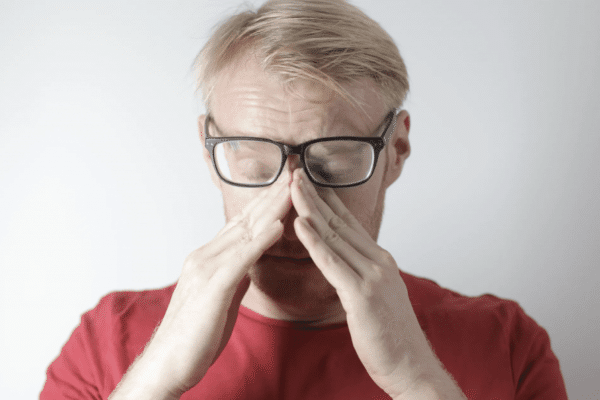Can You Die From Opiate Withdrawal?
Often opiate withdrawal is thought of as severe but not necessarily life-threatening.
This belief is dangerous and false. Every person reacts to the withdrawal process uniquely, some much more violently than others.
Substance use disorder is a severe condition that requires professional help. Only a medical professional can assess and treat your specific needs.
Learn the truth about withdrawal now.
Can Opiate Withdrawal Cause Death?
Yes, opiate withdrawal can cause death. Without proper management or care, the body cannot handle removing a substance to which it is physically addicted.
Death is a rare side effect but must be considered when entering a withdrawal period. Often it is not the drug itself that causes death but the results of the chemicals leaving your body.
The side effects and withdrawal symptoms can be so severe that the body ceases to function or operates at a highly diminished capacity.
How Does Opioid Withdrawal Death Happen?
When the body suddenly loses a substance it has grown dependent on, a short-circuiting causes a rapid decline in your well-being.
An increase in heart rate can lead to fatal heart attacks, even in a healthy cardiac system. As blood pressure rises, so does the risk of a stroke. Heart attacks and strokes are the most common reasons for death during withdrawal.
Quitting opioids “cold turkey” gives your body no time to adjust and can do more harm than good in some patients.
Patients with an underlying medical condition are at the most significant risk for death. Unfortunately, addiction to opiates is itself often classified as a chronic condition.
The body is in a weaker state due to its dependence on drugs and therefore leaves you more susceptible to severe consequences, including death.
The Dangers of Opioid Withdrawal
Opioids include many drugs, including heroin, fentanyl, oxycodone, morphine, and others.
Abrupt cessation of any opioid you’ve grown physically dependent on leaves the potential for dangerous symptoms and side effects.
Other risks include becoming addicted to another opioid to avoid reliance on another. Some detoxification methods involve using other, less potent forms of opioids. A common threat is for those detoxing from heroin to become addicted to methadone. It is essential to understand what medications to turn to during detox.
It is essential to avoid any drugs that activate the same part of the brain as opioids when going through the detoxification process.
If you want to detox without taking more opioids, other non-addictive medications are out there that can help you.
What are the Common Opioid Withdrawal Symptoms?
While everyone will experience slightly different symptoms and effects from withdrawal, some universal conditions are essential to note.
Any of the following symptoms are cause for alarm and require medical attention:
- Insomnia
- Sweating
- Vomiting
- Diarrhea
- Fast Heart Rate
- Shortness of Breath
- Extreme Anxiety
- Fever
- Hallucinations
- Seizures
- Muscle Pain
- Body Aches
- Nausea
- Elevated Blood Pressure
These symptoms will appear quickly. The onset is usually within 12 hours of the last dose or as long as it takes for the effects of the drug to wear off completely.
If you have recently taken an opioid and are experiencing any of those symptoms, call a medical professional right away to determine your next urgent steps.
What Happens During Opioid Withdrawal?
No guide can walk you through a universal opioid withdrawal experience. The only guarantee is that it will be unpleasant and difficult.
An addiction to drugs rewires your brain’s pleasure center; when the drug is removed, your body still seeks the same substance; when it is not satisfied, your body fights back in a last attempt to fulfill the desire.
The symptoms can last up to two weeks for some people; in others, the side effects will dissipate in just a few days. It all depends on how long the addiction has been present, how healthy you are aside from the drugs, and the type of drug.
If you experienced an overdose and the emergency crew administered a drug such as Naloxone to reverse the overdose, withdrawal symptoms will likely come on faster and be more extreme.
There is no way to go through withdrawal without experiencing side effects and symptoms. The severity will differ, but the reality is unpleasant at any level.
How Can You Withdraw From Opioids Safely?
The only way to be sure you have a successful withdrawal is to enter a rehabilitation facility. A team of doctors and nurses can check your vitals and adjust any treatment as needed. The first few hours are crucial for maintaining the body’s equilibrium.
You will need 24/7 supervision by trained medical professionals for the first week.
Often opioid antagonists like Naltrexone injections are used to quell cravings and calm the mind’s addiction. This non-addictive treatment reduces the feelings of euphoria associated with opioids while simultaneously lowering your desire for the drug.
Work with doctors to determine which treatment is best for your situation.
With proper medication, patients can avoid some of the worst symptoms, and the chance of dying is greatly reduced.
But to ensure the withdrawal is long-lasting and does not slip into a relapse, you must also pair medication with therapy or counseling.
Medication is always a temporary situation; talking to professionals and changing your mindset is the safest practice you can do for your long-term recovery health, both physical and mental.
Conclusion
If you or a loved one are suffering from substance use disorder, call the Master Center right now.
Our patient and discreet operators are standing by to help you find a convenient location you can enter today. Across Virginia, we’ve been helping those in need recover from opiate addiction and substance use disorder for many years.
Our holistic method looks at you as an individual, not a number. Along with Medication-Assisted Treatment (MAT), we offer therapy and counseling to ease you back into your life.
Recovery is a lifelong journey; Master Center is here to show you the way forward.


